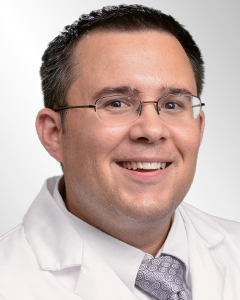Nearly 1 in 4 Americans Expected to Have Hearing Loss by 2060
More Americans are expected to lose their hearing in the coming decades, according to a recent report.
The report, published in JAMA Otolaryngology-Head & Neck Surgery by Johns Hopkins Medicine researchers, states the amount of Americans who have hearing loss will increase from 44 million in 2020 to 73.5 million people by 2060, a figure that amounts to 23 percent of the population.
Researchers reviewed National Health and Nutrition Examination Survey data from 2001 to 2010 to determine the prevalence of age-related and severe hearing loss in the U.S. They found older adults will make up the majority of Americans who have hearing loss in the future, as 67 percent of all adults age 70 and older will experience some form of this condition.
Currently, 48 million Americans and 33 percent of seniors have hearing loss, according to the Hearing Loss Association of America. Most of these people have mild hearing loss, but people age 80 and older are more likely to experience more severe forms of hearing loss, which is categorized as either mild, moderate, severe or profound.
The study’s researchers say hearing loss is a growing public health concern and that hearing care in the U.S. is more limited than it should be. Hearing loss is a chronic condition, but it can be costly for patients to get treated because it isn’t covered by insurance. When someone loses hearing, it has a huge impact on his or her work and quality of life. Hearing loss makes communication more challenging, and that can impact a person’s self-sufficiency. A study by the Institute on Deafness and Other Communication Disorders also suggests that there may be a link between hearing loss and depression: 11 percent of people with hearing loss in the study also had depression, a rate that is more than double the general population.
Though some people are born with hearing loss, repeated exposure to loud noises and aging can increase your risk for this condition. Excessive earwax, an ear injury or object lodged in the ear, an ear infection or ruptured eardrum also can cause hearing loss.
This study indicates that we need to do more to help people maintain their hearing, especially as they age. This should include encouraging patients to get hearing tests and educating them about the dangers of ongoing exposure to loud noises, especially loud music they may listen to via headphones — or even worse — earbuds. Young people particularly need to be aware of this: according to one World Health Organization study, 1.1billion young people are at risk for hearing loss because of their use of personal audio devices like headphones and smartphones.
Hearing loss is preventable, but you have to take steps early to protect your hearing. Get tested, limit your exposure to loud music and talk to your doctor if you notice changes in your ability to hear. Though prevention is the best medicine, getting treatment early could make a significant difference for your long-term hearing.
Are you interested in learning more about otolaryngology?
Otolaryngology is a branch of medicine that concentrates on the ear, nose, and throat. These surgeons receive specialized training and perform procedures that include endoscopic sinus surgeries, surgeries on the ear and vocal cords as well as the removal of cysts and tumors in the region.







